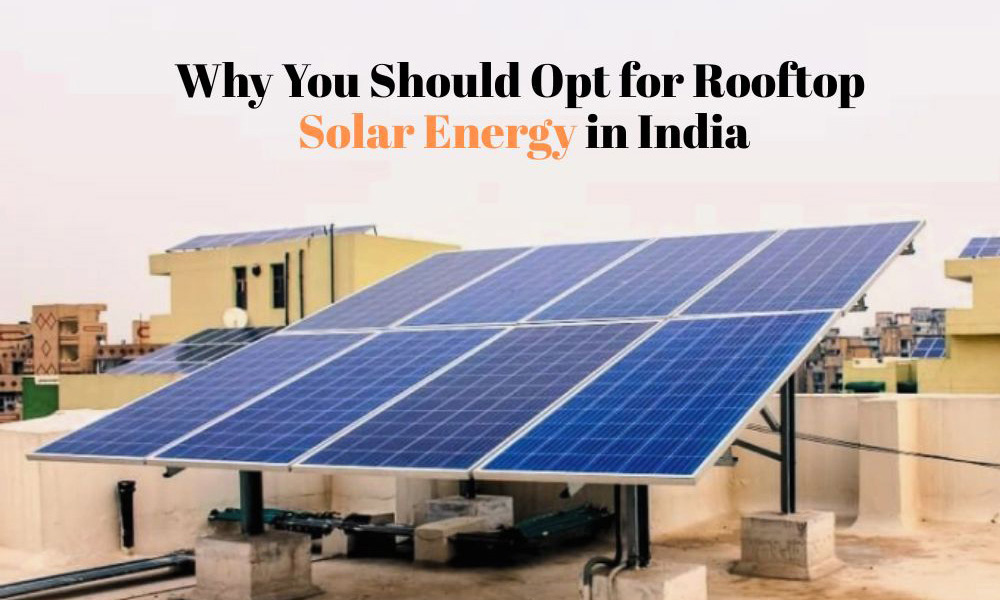Why You Should Opt for Rooftop Solar Energy in India!
India, with its vast land area and abundant sunlight, has always been a nation with immense potential for solar energy. As the world increasingly shifts toward renewable energy sources to mitigate climate change, India has a unique opportunity to harness the power of the sun through rooftop solar panels. In recent years, the adoption of rooftop solar energy has been gaining traction, not just for its environmental benefits but also for the long-term financial savings it offers. In this article, we will discuss the benefits of adopting rooftop solar energy in India. We'll also explore important factors such as the cost of a 1-kilowatt solar panel, installation expenses, available solar panel subsidies, and how the expert team at Prayag Solar Power can assist you in securing the most efficient rooftop solar solution.
1. Abundant Sunshine
India is one of the sunniest countries in the world, receiving an average of 300 sunny days per year. This makes it a prime location for solar energy generation. Installing rooftop solar panels allows homeowners and businesses to tap into this renewable resource, reducing their dependence on conventional grid electricity, which is often expensive and unreliable, particularly in rural areas. By utilizing solar power, homeowners can generate their own electricity, drastically cutting down on monthly electricity bills. With the country’s growing energy demands and frequent power cuts in certain regions, solar energy can provide a stable and sustainable solution.
2. Rising Electricity Costs
The cost of electricity in India has been on the rise, with tariffs increasing year after year due to rising fuel costs and growing demand. By installing rooftop solar panels, you can shield yourself from these increases. Once your solar system is set up, the cost of generating electricity from solar power is almost free, except for maintenance. When you consider the solar panel installation cost, which includes purchasing the solar panels, inverters, and other accessories, this initial investment might seem daunting. However, it is crucial to keep in mind that the long-term savings on electricity bills and government incentives significantly reduce the financial burden.
3. How much will 1kw solar panel cost?
The cost of 1kw solar panel depends on the brand, quality, and other factors. On average, the cost for a 1kW solar panel in India ranges between ₹45,000 and ₹50,000. While this initial investment might seem high, the price has steadily decreased over the years as solar technology advances and the industry scales.
4. What is the lifespan of Solar panel?
The lifespan of solar panels typically ranges between 25 to 30 years, making it a cost-effective solution over time. With the use of high-quality panels, you can expect a return on investment (ROI) within 5 to 7 years, after which the energy generated is virtually free.
5. Government Incentives and Subsidies for Solar Panel in India
The Indian government supports solar energy adoption through Solar panel subsidies for rooftop installations, typically offering 30-60% rebates on the total cost. These subsidies vary by state. Under the PM Suryamitra Muft Bijli Yojana, the Narendra Modi government is pushing for widespread adoption of solar power by offering free electricity to low-income households through the installation of rooftop solar panels. The initiative is aimed at helping all the middle class families living in rural and urban areas of India. Further reducing the solar panel installation cost for eligible beneficiaries. This makes it even easier for the underprivileged to transition to clean, sustainable energy without the financial burden. The government has also introduced programs that promote solar power in rural areas, with special incentives for agricultural and residential users. These subsidies make it more affordable for homeowners to transition to solar power, helping to offset the initial solar panel installation cost and making it a more accessible investment.
6. Cost Effective Solution
By generating your own electricity, you are no longer at the mercy of Private companies. This is especially crucial in regions where the power grid is unreliable or in urban areas where electricity is expensive. In addition, many solar panel systems come with battery storage options, which allow you to store excess energy generated during the day for use at night or during cloudy weather. This further enhances energy independence and can ensure a continuous supply of electricity, even during power outages. This is how our client Ganesh benefitted after Installing Solar Panel My name is Ganesh Yadav, and I am from Prayagraj, Uttar Pradesh. We installed a 3-kilowatt solar panel from Prayag Solar Power, for which we received a subsidy of 108,000 rupees from the government. Before installing the solar panel, our monthly electricity bill used to be around 3,000 rupees, but now it is zero. This way, we are saving more than 45,000 rupees annually. The amount we spent on the panel will be recovered in just 5 years, and after that, we will receive free electricity for at least the next 20 years.
6. Easy Installation and Minimal Maintenance
Another attractive feature of rooftop solar panels is that they are relatively easy to install, especially if you work with a reputable company. Prayag Solar Power, for instance, is one of the leading solar panel installation companies in India, known for its excellent customer service, quality panels, and professional installation. We offer end-to-end services from assessing your energy needs to Installing the solar panels and ensuring optimal performance. Once installed, solar panels require minimal maintenance. The occasional cleaning of dust and debris is necessary to maintain efficiency, but other than that, solar panels are highly durable and can last for decades. Most solar panel manufacturers offer warranties of up to 25 years, ensuring that your investment is protected for the long term.
7. Environmentally Friendly
Apart from the financial benefits, one of the most compelling reasons to adopt rooftop solar energy in India is its positive environmental impact. Solar power is a clean, renewable energy source that reduces your carbon footprint. By choosing solar energy, you are reducing your dependence on coal and other fossil fuels that contribute to greenhouse gas emissions. Given the growing concerns about climate change and air pollution, using solar power at the household or commercial level is one of the easiest and most effective ways to reduce environmental impact. Installing solar panels reduces your carbon emissions significantly, contributing to India's renewable energy targets and improving the quality of the environment.
If you have any questions or need further clarification, we're here to assist you. Contact us now!





